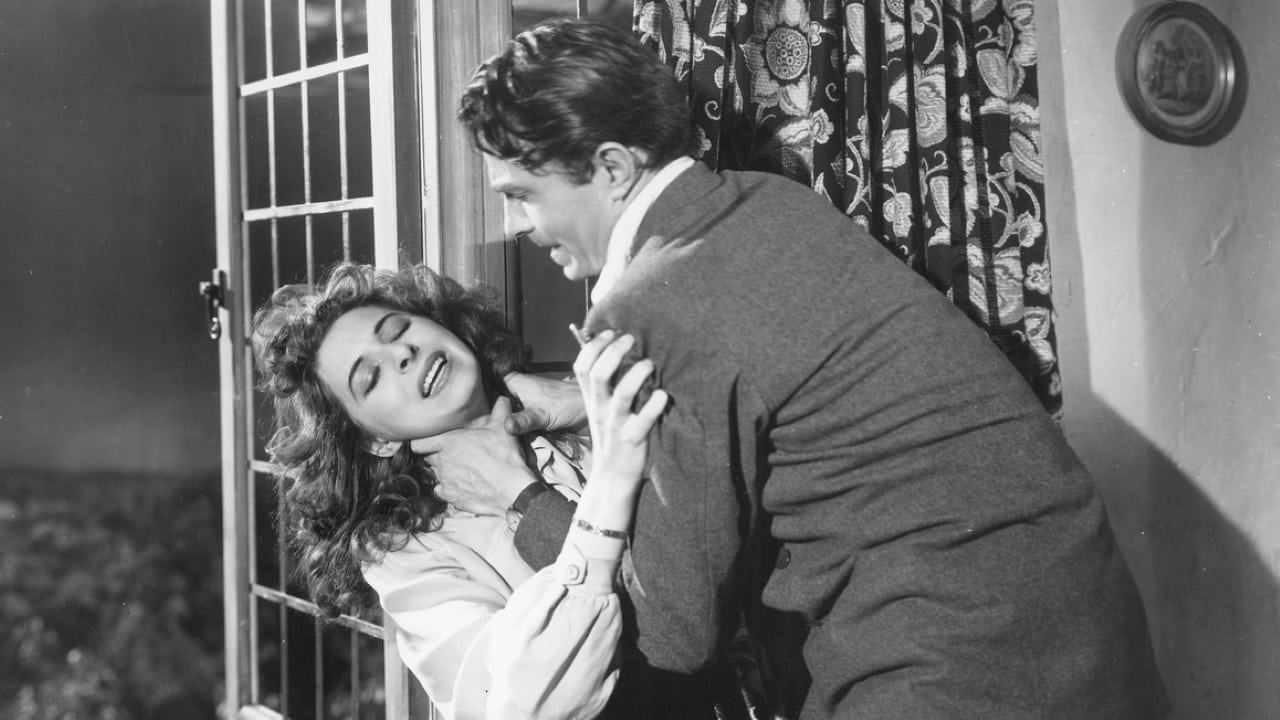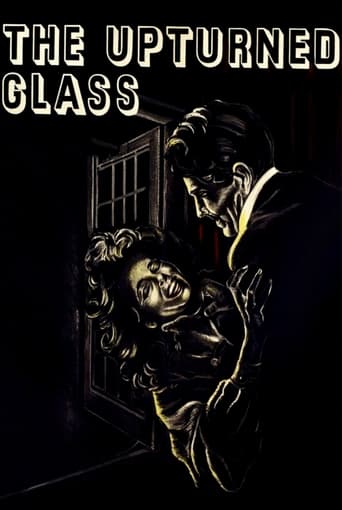

What makes it different from others?
... View MoreIt's not great by any means, but it's a pretty good movie that didn't leave me filled with regret for investing time in it.
... View MoreMostly, the movie is committed to the value of a good time.
... View MoreThe storyline feels a little thin and moth-eaten in parts but this sequel is plenty of fun.
... View MoreOne of the earlier reviewers suggested that the film takes "the easy way out." I partially agree, but think that the real reason for the disappointing finale was the censors. They, in their moral righteousness, did their very best to ruin any number of UK and American films. In this case, the ending makes little sense. Otherwise, a very satisfying early addition to the film noir genre. The photography and pacing are perfect and carry the bleak mood. A minor quibble is that the notion of the lovers breaking off wasn't totally credible, but then, perhaps it was a different moral universe in the 1940s. Mason, as always, is excellent to the point that the viewer cannot take his eyes off of him (not that one would want to). Pamela is a hateful character, as from all reports, she was in real life.
... View MoreThe Upturned Glass is directed by Lawrence Huntington and written by John Monaghan and Pamela Kellino. It stars James Mason, Rosamund John, Pamela Kellino, Ann Stephens, Morland Graham and Brefni O'Rorke. Music is by Bernard Stevens and cinematography by Reginald H. Wyer. Plot finds Mason as Michael, a brilliant surgeon who falls in love with Emma Wright (John), the mother of a young girl whose eyesight he saves. Trouble is that Emma is married to a man who works overseas a lot and it's a relationship that ultimately has to end. When word comes that Emma has been tragically killed after falling out of a top floor window at her home, Michael decides to investigate further. It's an investigation that leads Michael down very dark roads.....What a time to go buy a house, you must be demented!One of the last British films Mason made before leaving for America to work contractually for MGM, The Upturned Glass is a Hitchcockian like thriller that's tinted with a film noir edge. With Mason co-producing and his then wife, Kellino, co-starring and co-writing, it was very much a personal project. The film finds the "Mason's" experimenting with a flashback structure that is in turn covered by a Mason narration. Always easy to follow, the picture does however shy away from offering up easy answers, purposely leaving some things tantalisingly dangling in the air. It also retains a murder mystery interest before diving head first into that of a study of a psychological break down. There's some devilment in the narrative, even a bit of cheeky daring that shows its hand once Mason's lecture that opens the film is seen in the light it was meant to be.Today I sat in judgement.With Wyer's photography dealing in shadows and smoky lenses, and Huntington showing a keen eye for atmospheric composition during scenes involving the empty house and the village chapel, there's enough visual treats for the film noir crowd to feast on. Into the equation as well is the vagaries of fate, a theme so prominent in the great noir pictures of the past, the outcome of this picture is defined by a decision Michael makes, the irony of which is as snappy as a crocodile. The finale has been lamented by others due to its suddeness, to that I have to say they missed the point, it's suitably cold and closes the picture perfectly. The title has even been called into question, some even saying it has nothing to do with the film or is unfitting? It all fits during the best period of dialogue between Michael and Dr. Farrell (O'Rorke)! I do believe this is a film worthy of reappraisal by a more genre compliant audience.It's not overtly film noir, but the blood line is there, and with Mason on simply irresistible form this is highly recommended to fans of noir and Hitchcockian flavoured black and whites. 7.5/10 MPI's Region 1 DVD is a decent print, some snap and pop from time to time on the edges, and the sound mix is always audible if not pristine throughout.
... View MoreUp until about 80-90% of the way though the film, I was very impressed by "The Upturned Glass". It was an interesting thriller that was unique and worth seeing. However, towards the end, the film seemed more hastily written and a bit dumb--especially when the murder occurred.James Mason plays a neurologist who is well-known for his great lectures. In a hall packed with students, he tells the story of a patient who murdered but was NOT mentally imbalanced. While he changes the names of the characters, the film audience can see that the story is about Mason himself--he will eventually kill someone. The story explains all the events leading up to it. Then you learn that he has NOT yet killed but wanted, in a crazy way, to tell others about his plan before executing it. All this is quite good. However, when he then executes the plan, it's amazingly sloppy and he makes many mistakes. I didn't like this but at least the film in the end redeemed itself with a dandy ending. In many ways, this is almost like a British version of noir. Interesting and worth seeing.By the way, look for the scene with the 'American' soldier. His accent was TERRIBLE and he clearly sounded like a Brit trying to sound American. I assume in American-made films, we Yanks must sound the same way when we portray Brits!
... View MoreIt's almost parody, when you are immersed into a dark, forbidding noir world -- populated by proper English gentry. But THE UPTURNED GLASS is a superior crime piece, with a distinctive English taint. That taint being, essentially, the story of a respected brain-surgeon with a very staid life of drawing room seclusion and introspection -- read, the image/stereotype of the ideal British "gentleman" -- who chooses to exit his world of detached observation, to exact justice in a personal matter. In a nutshell: James Mason plays a brain surgeon, who recounts in a lecture, an incident of crime to a university class. In flashback, we see his affair with a married woman (Rosamund John) after treating his daughter, and their mutual breaking off of the engagement. Later, when she "falls from a window," Mason suspects murder. We see the details of his plan to revenge himself on his lover's sister (Pamela Mason), and everything goes exactly as planned. But when it comes to actually committing the act, it does not go so smoothly.... Brefini O'Rourke and Mason engage in an interesting debate at the close of the movie, that lays out the pertinent moral dilemma (as well as the significance of the title): Do we do what is right because it is right, or do we do it because of personal gain, flaws, obsessions, etc.? A theme which would be echoed later, and very closely to THE UPTURNED GLASS's method (and much more horrificly), in both versions of THE VANISHING. Mason ends this movie, on the edge of the cliffs over Dover beach, where there lies "no certitude, nor peace, nor help for pain," as Matthew Arnold sees it: Mason ends his long day of murder and things gone terribly awry in blind ignorance, alone and -- as the camera does not even pick up his final fall or his broken body -- forgotten, lost. Mason and his wife (who co-produced and co-wrote respectively) were experimenting with structure in THE UPTURNED GLASS; the result is an interesting story that feels to be told in two parts. It takes its time to build (ever a British trait), but once the story gets going, it is relentless in its tension; especially during the twenty-minute or so sequence where Jason Mason attempts to escape with Pamela Mason's body. Though it's a green and pleasant land we are moving through here, the camera's eye chooses only to see it through a lens darkly, and starkly: an empty house of shadows, a chapel that is all but a ruin of shadows, fog-lit moorish wastes, the good doctor's own living quarters practically infested with shadows itself. James Mason is phenomenal, taking a role where he is ever so slightly detached from whatever scene is at hand. Paranoia seems to be part and parcel of his make-up, and often throughout the movie, it appears as if we are often seeing events as *he* sees them: students asking questions, party-hosts with probing eyes, a good country doctor staring at you through his spectacles -- every one of them might be doing more than just looking at you, they might very well be looking *through* you... probing you, inspecting, judging. We never know if his lover really *was* murdered in the end, or if she jumped volunatarily, or if it really were simply an accident after all. Mason's scheme doesn't allow, or worry, about that at all: his is an inchoate vengeance, directed at nobody in particular, not even fate, really. Pamela Mason is simply the most readily available target for a fatal flaw, as was the poor girls that book-end the movie: the nameless, faceless one hit by the lorry at the end, or the young daughter a victim of a brain-splinter at the beginning. In the sudden climax of THE UPTURNED GLASS, no one knows anything for sure -- not love, not hate, and hardly anything like certainty... we are all just rocks, washed up on an empty beach, "where ignorant armies clash by night...."
... View More